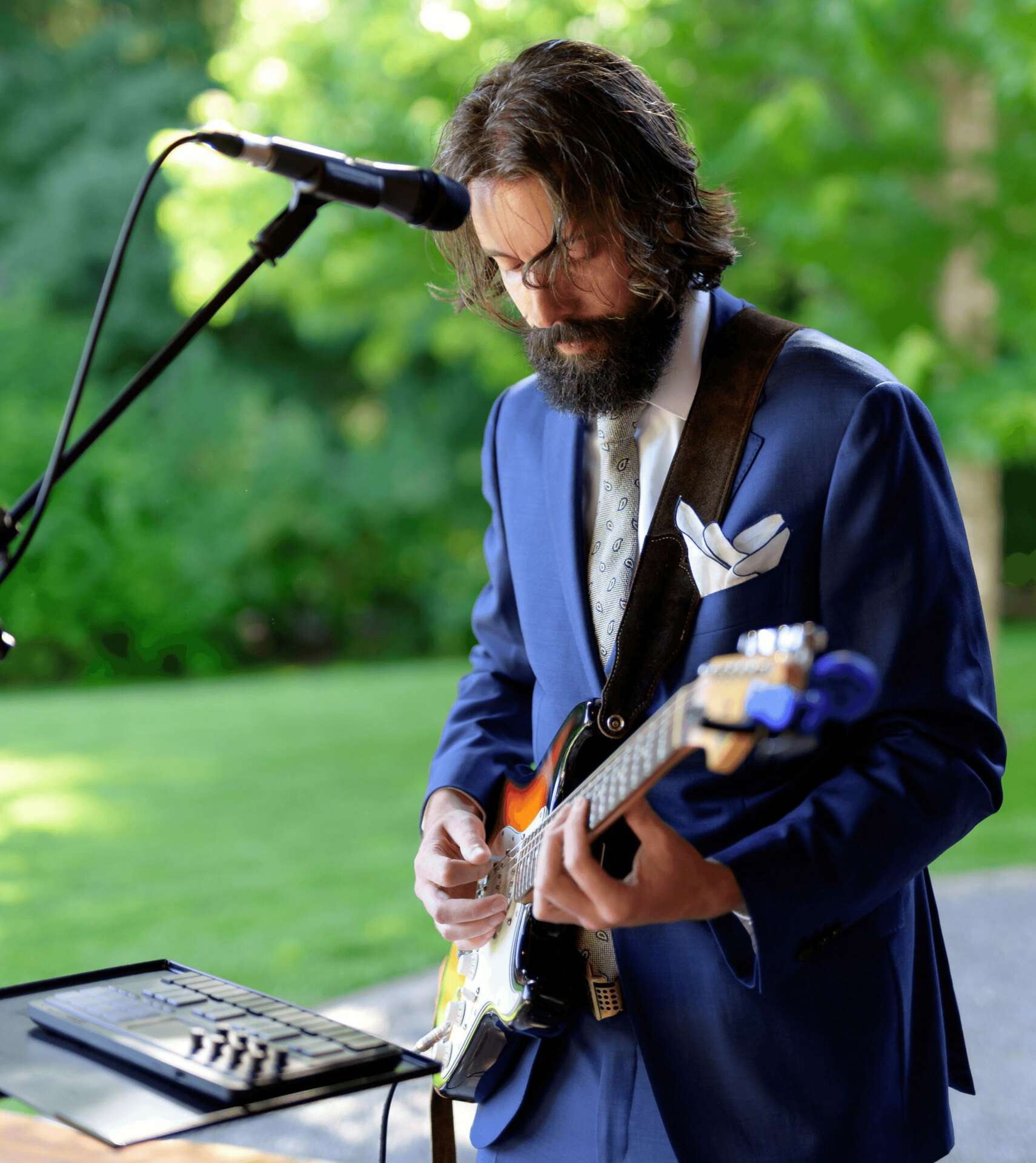Alright – so today we’ve got the honor of introducing you to Grant Swift. We think you’ll enjoy our conversation, we’ve shared it below.
Grant, thanks for taking the time to share your stories with us today Earning a full time living from one’s creative career can be incredibly difficult. Have you been able to do so and if so, can you share some of the key parts of your journey and any important advice or lessons that might help creatives who haven’t been able to yet?
Yes, I have been able to earn a full-time living from my creative work. There is a caveat though – my creative work has been shaped by the pressures of business. In some ways, this pressure has distilled the creative essence to something new, exciting, and unimaginable by me just 5 or 6 years ago, but in other ways, it can compromise the creative juices, especially if you are operating with a singular artistic vision and want to doggedly pursue that. Some things are easier to sell than others.
In my 20s I had been making original music with other musicians for over a decade, while working a “day job” and I just hardly ever felt we were making real progress towards paying the bills through music, or growing a sustainable fanbase. It was always a piecemeal approach, and momentum was hard to sustain. And personally, I always found it extremely difficult to manage my time amidst different goals. Transitions have always been very hard for me (there are some familiar diagnoses I could throw out here, but many creatives will know what I’m talking about). I was always either hyper-focused on the task at hand, or distracted by competing interests. When I finally got let go from my day job, a musician friend of mine suggested we try to make every dime we could, just from playing music. We knew from experience that very few venues were willing to give cash guarantees to bands without a solid guarantee of a crowd, so we filled out our covers repertoire. We learned dozens of new songs, we busked, we started advertising online on event platforms like GigSalad, and we approached businesses with liquor licenses who might have an interest in live music. We asked for a flat rate. To our surprise, we got hired. Then, we focused on procuring private events. We put out business cards at all our shows, and offered very cheap prices at first. We could throw in our original songs as well, and the folks who hired us became longtime fans. Eventually, people even ASKED us to play the originals. When I started to realize the extent to which people are willing to pay money for music they know and love, or when it’s catered specifically to them, the opportunities to make more money through music started to become more clear. Play someone’s favorite song for them at their birthday party, and they won’t just forget you.
About a year later, my other musical partner moved away and I transitioned to doing these types of gigs as a soloist. We still had gigs on the calendar as a duo, but I didn’t think I could find anyone to adequately replace my musical partner, so I decided to buy a looper pedal to fill out the sound, and started messing around with it. Looping is its own creative art, with a variety of approaches, but I started to realize I could create so many elements of one song, all on my own. It became a kind of personal challenge too – seeing how quickly or efficiently I could lay down a bass line, while singing a verse, while intermittently hitting some keys on a small keyboard. Now, when I play events I work almost exclusively as a “one man band” and I really enjoy it. It’s opened up a whole new way of creating music for me, and it’s allowed me to charge more money for performances. And, at the end of the day, there are few things more gratifying than getting hired and paid to do something that I love learning to do. I’m a lover of the history of music and musicology as well, and that has helped me in my songwriting and arranging capacities. It’s really fun when I get hired to help someone write a song, or record, or do arrangements for different kinds of instruments. On the best days, I feel like I’m getting paid to get a continuous education in the creation of music, even though I’m nominally getting hired for the expertise and the experience I already have. :)
There’s a lot that you just learn by doing, so it’s hard to look back and know what could have been sped up. But, I guess I would say that I wish I wouldn’t have been so resistant to bringing more traditional professionalism into my approach – wearing suits, having business cards on hand all the time, replacing equipment when it becomes too worn – these are all things that go a long way in making folks want to work with you.

Awesome – so before we get into the rest of our questions, can you briefly introduce yourself to our readers.
I’ve been playing music in some capacity since I was 6 years old, when I was in a semi-professional children’s choir. I played viola in the school orchestra from when I was 9 years old up through my graduation from high school. When I was 13 I started playing guitar and writing songs and sometime around then I had the inkling that I wanted to play music professionally. I double majored in Philosophy and Music at Fordham University, where I focused on music theory and composition, and was the Music Director of the college’s original all-male acappella group. Today, I am most often hired as a “one man band” and a “singing guitarist” for everything from private events and weddings, to corporate events. My “one man band” kind of bridges that gap between a solo singer and a full band, but without all the uncontrollable volume and large footprint that often comes with a 4+ piece band. Beyond that, I would say that my varied approach is my biggest strength. I have a lot of knowledge and experience with different musical styles, in both formal and extremely informal environments. I can read music, and understand music theory, but I also excel at learning by ear and improvising and playing off the cuff. Being able to blend that studious and thoughtful approach with the spontaneity of live performance has been the cornerstone of my one man band. Carving out that unique niche is what I’m most proud of in this business over the past several years.

Is there a particular goal or mission driving your creative journey?
I want to help music regain some respectability as a “fine art.” Music is so often relegated to a utilitarian function, something to accompany visual art, something to “set a mood,” to sell a product, to facilitate your morning workout, to spice up a presentation. Music has become very cheap and abundant, and disposable, like single-use plastics. Its abundance encourages us to view it through a utilitarian lens, and for some of us, to view it with disdain (like so many folks view single-use plastics). And who wants to create meaningful music when the process feels like that? So, there’s a kind of vicious cycle as I see it, and one of the biggest downstream problems is that artists are undervalued.
It was interesting to play music for events right as the pandemic was slowing down. So many people told me they had a newfound appreciation for music, not only because of the meaning it brought to their lives during difficult times, but also because so many of them had taken up a musical instrument while they were stuck at home. They told me “Wow, I didn’t realize how hard this is!”
At its best, I think music making is seen as something like magic-wielding. But magic requires that “wow” factor, and it loses that if it’s everywhere, and if it gets made less by humans, and more by machines. That’s a big reason I try to challenge myself as a “one man band.” I don’t like taking the easy way out. I don’t use click tracks, and I don’t ever pre-record anything.

Looking back, are there any resources you wish you knew about earlier in your creative journey?
All of them. Hahaha…. I always had somewhat of a DIY ethic when it came to music, especially growing up without much money and playing in a rock band in a suburb of NYC. I don’t think I ever really appreciated that hardly ANYONE does this alone. You always need people in your corner, and there are TONS of resources to use, even if you don’t have a wealthy relative. Whether you’re building a business or trying to build a career as an artist, go to conferences, sign up with your local community organizations, or the chamber of commerce. Go to every networking event, and ask those who you respect to meet up with you. 9 times out 10, people who you admire will be flattered and very willing to let you pick their brain. There’s a very silly cliché, but it has a lot of truth: your net worth is your network. We are social creatures, at our core. So, respect that, and make connections. Don’t try to outsmart nature – you’ll lose.
Contact Info:
- Website: https://grantswift.com
- Instagram: https://www.instagram.com/grantswiftmusic
- Facebook: https://www.facebook.com/grantswiftmusic
- Linkedin: https://www.linkedin.com/company/87226017
- Twitter: https://www.twitter.com/grantswiftmusic
- Youtube: https://www.youtube.com/@grantswift
- Soundcloud: https://soundcloud.com/grantswift


Image Credits
Edwards Creative
Eat The Cake NYC
Rob Nguyen Photography


